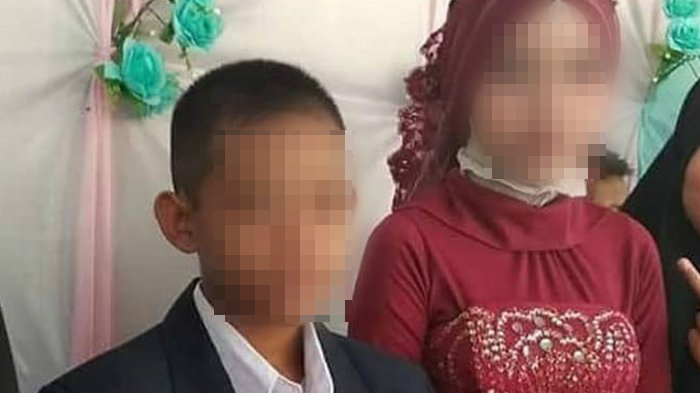Child marriage have long been practiced in Indonesia but it is only recently that stories about young teens tying the knot have regularly been making the national news amid warnings by some officials that child marriages have risen to “emergency” levels. This has led the government to begin cracking down on the practice and even intervening in some particular cases.
Last Friday, a 13-year-old boy identified by his initials ZA, who just graduated from elementary school, married his 15-year-old girlfriend, IB, in the Tapin Regency of South Kalimantan. The pair was wed by a village religious official and held a reception ceremony.
But their marriage didn’t last long. After word about the marriage spread throughout the area, the district Religious Affairs Office (KUA) — which holds sole authority over the legal recognition of religious marriages in Indonesia — as well as the district police’s Women and Children Protection Division (P2TP2A) met with the bride, groom and their families.
By Saturday, KUA had annulled their marriage as it did not meet legal and religious requirements. The village religious official who officiated the wedding also accepted that the marriage was not legitimate.
Even though the government successfully intervened in this case, Binuang District KUA Head Ahmad conceded that there are still avenues the teenage couple could take to make the marriage legal under Indonesian law.
“The families of the couple could take the case to a religious court to get a legal dispensation for their marriage,” Ahmad said, as quoted by Kompas.
The families thought about going to a religious court, but have reportedly changed their minds after the Tapin Child Protection Agency advised them against the marriage. Both ZA and IB are going back to school.
In April, a 15-year-old and a 14-year-old from South Sulawesi received legal dispensation from the local religious court to marry after their initial marriage request was denied by KUA. In reaction to the shocking case, President Joko Widodo has agreed to sign a regulation raising the minimum age for marriage and effectively end child marriage, though there have been no reports that it has been signed since.
The current legal age of marriage in Indonesia is 19 years old for men and 16 years old for women. However, the country’s 1974 Law on Marriage also includes a major loophole to this requirement which allows marriages to still be considered legal if they are done “in accordance” with religious belief, known as nikah siri. As such, underage marriages that have been sanctified by religious courts or officials must still be officially recognized by the government — if not, many are satisfied with merely fulfilling religious or traditional requirements for marriage.
In April of last year, Indonesian female Muslim clerics issued an unprecedented fatwa (edict) declaring child marriage to be harmful as it is a large contributor to Indonesia’s high maternal mortality rate. Furthermore, they cited studies that many Indonesian child brides could not continue their studies once wed and half their marriages ended in divorce in addition to child marriage increasing the risks of exploitation, sexual violence, and domestic abuse.
Even so, stories about children getting married continued to take place and go viral on social media. Women’s Empowerment and Child Protection Deputy Minister Lenny Rosalin said that child marriage in Indonesia is at “emergency levels” as, based on UNICEF data, Indonesia ranks seventh in the world and the second highest in Southeast Asia in terms of the overall percentage of marriages in which at least one of the spouses is under 18 years old. According to government census data, 17% of all Indonesian girls married in 2016 were under 18.




